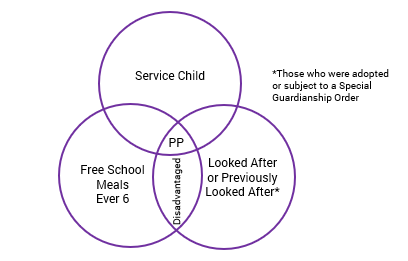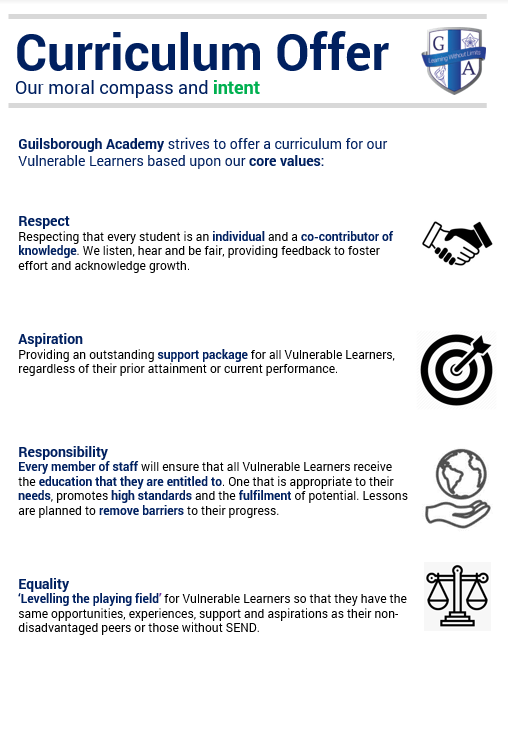Pupil Premium
Guilsborough Multi-Academy Trust is dedicated to diminishing the attainment difference between those that are deemed to be our most deprived students and their peers through a variety of methods, one of which is via the Pupil Premium Fund.
Introduced by the government in April 2011, the Pupil Premium Fund assists schools in addressing the underlying inequalities between eligible children and their peers. The Pupil Premium funding is allocated to students between Reception and Year 11 (Years 7-11 at Guilsborough Academy) and for the 2024-2025 academic year, funding is set at:
- £1050 for any child in receipt of Free School Meals or has been in the last six years (Ever 6 FSM) (not including those who received universal infant free school meals who otherwise would not have received them)
- £2570 for any child who is LAC defined in the Children Act 1989 as one who is in the care of, or provided with accommodation by an English local authority or who is PLAC having left local authority care in England and Wales because of adoption, special guardianship order or child arrangements over (previously known as a residence order)
- £340 for any student whose parent(s) is serving in the regular armed forces, including pupils with a parent who is on full commitment as part of the full-time reserve section or is in receipt of a child pension under the Armed Forces Compensation Scheme or the War Pensions Scheme. Has been registered as a “services child” in the last six years.
Free school meals and pupil premium | West Northamptonshire Council
You may be entitled to free school meals for your child(ren) if you receive one of the following benefits:
- Income Support
- Income Based Job Seekers Allowance
- Child Tax Credit Only (with income up to £16,190) with no element of Working Tax Credit
- National Asylum Seekers Support
- Guarantee Element of the State Pension Credit
- Employment and Support Allowance
- Universal Credit (Income Related)
More information and the application process can be found on West Northamptonshire County Council website here.
Guide for Supermarket Vouchers
Who and why? Our moral compass and intent

Research has found that a child’s socio-economic background directly impacts their learning and subsequent opportunities in adult life. These factors are beyond the child’s control, such as their parents’ income. The Education Endowment Foundation (EEF) has found that Disadvantaged Students:
Cultural capital is the essential knowledge that children require to prepare them for future success and contribute to the world around them. Cultural capital is intrinsically linked to economic and social capital, meaning that an individual’s cultural capital is a significant indicator of how well they will succeed academically.


